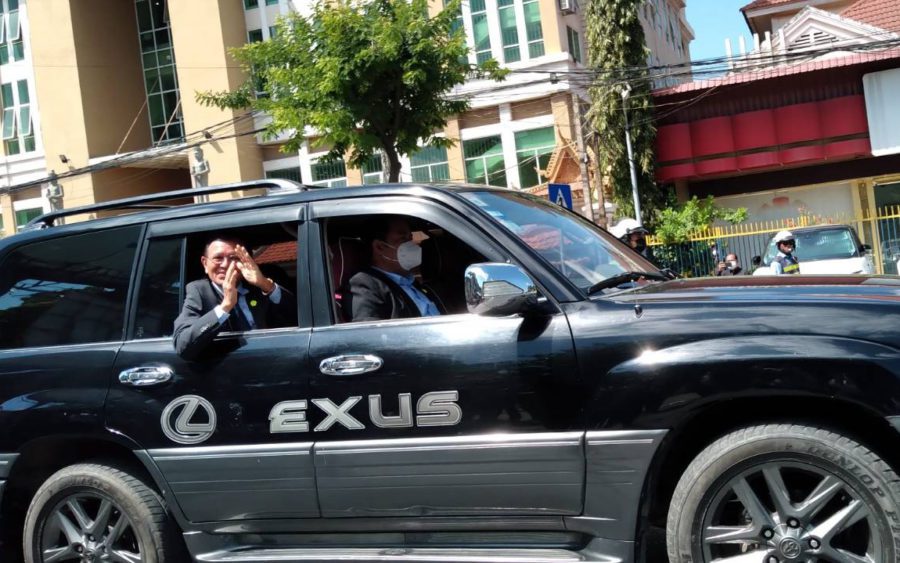As a treason trial against former opposition leader Kem Sokha resumed on Wednesday after a delay of nearly two years, lawyers attacked each other over the postponement.
Sokha also said he believed Prime Minister Hun Sen wanted a reconciliation and that the charges against him would be dropped, while a prosecutor said the only way the trial would finish early was if Sokha admitted his guilt or he died.
Sokha was arrested in September 2017 and the CNRP, the main opposition party he co-founded in 2012, was banned two months later. He is accused of colluding with the U.S. to topple the government, and faces up to 30 years in jail.
In the courtroom ahead of the hearing, Sokha told VOD that he believed the court would drop the charges against him so the country could move forward.
“Whenever we have a quarrel, there’s no benefit. We need national reconciliation,” Sokha said.
“I believe that there will be a solution. Even the ruling party, samdech also want national reconciliation,” he added, using an honorific for Hun Sen.
As he resumed the trial, presiding judge Koy Sao said the delay was due to Covid-19, and congratulated the government for its success in combating the pandemic.
“Because of this success, we have the chance to return and reopen our trial in order to ensure the rights of the relevant parties,” Sao said.
But the various parties immediately began attacking each other. Defense lawyer Ang Udom demanded that the judge further explain the delay as well as a change in members of the prosecution.
Udom criticized the court over the failure to respond to three requests to resume the trial filed in 2020 and last year.
See Also: Kem Sokha, The Case So Far
He said the failure to reply affected the rights of Sokha.
Deputy prosecutor Plang Sophal in turn criticized Udom, arguing a change in the prosecution team was nothing strange.
Another prosecutor, Chhay Hong, piled on, saying Udom had claimed to want to speed up the trial but instead raised an unnecessary issue.
The judge supported the change in prosecutors, but the prosecution and defense continued to argue over the change and delay of the trial, including whether other countries had also postponed court hearings during the pandemic.
“We are waiting for justice for too long,” defense lawyer Chan Chen said. “It is against the law because the accused has the right to get a fair trial.”
Deputy prosecutor Sophal challenged the fair-trial claim. The treason case had a large amount of evidence that the court must analyze, he said.
He also said a delay during the pandemic was inevitable.
“Is it possible to conduct trials during a Covid-19 outbreak? If [we] didn’t participate [in health measures], could we have today’s trial?”
Presiding judge Sao tried to mediate, saying he had given the chance for all parties to comment, but that the longer it went on, the trial was becoming like a fighting ring for the parties to clash with one another.
Government lawyer Ky Tech took his turn, asking the judges to recommend that parties raise only important points.
As another government lawyer, Ly Chantola, stood up to continue to criticize the defense for wasting time, Sokha jumped in.
He supported the government’s preventative health measures, he said.
“I support speeding up the trial to finish soon. I’ve already informed the leader so that I can participate in serving the nation,” Sokha said, though he did not specify if he meant Hun Sen.
Deputy prosecutor Sophal, however, said there were only two scenarios in which the case could finish prematurely: Sokha pleading guilty, or his death.
“If the accused died, what to do with the trial,” Sophal said.
If Sokha pleaded guilty, “nothing is difficult,” he said. “The evidence is enough, and if the accused admits it, that will be the end.”
After a 15-minute break, judge Sao asked all parties to end the dispute and rewatch 20 minutes of a video previously played in court showing a speech Sokha made in Melbourne in 2013.













